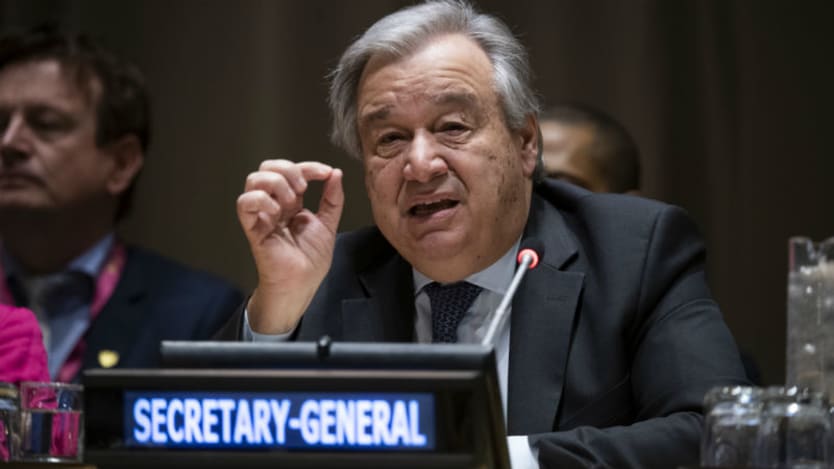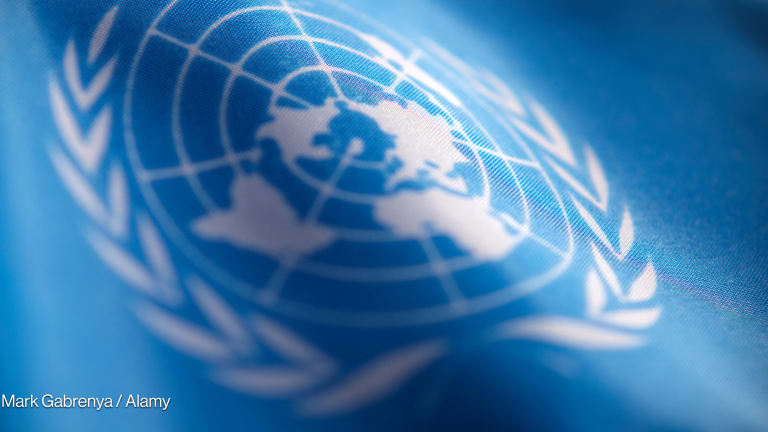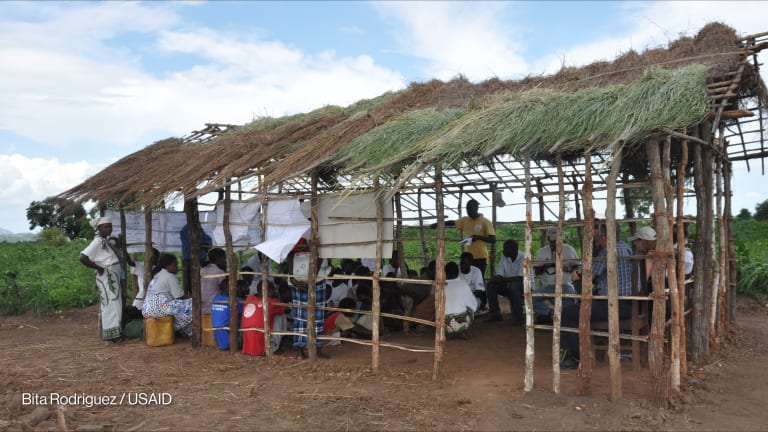
UNITED NATIONS — U.N. Secretary-General António Guterres and Emergency Relief Coordinator Mark Lowcock this week called on member states to match rising humanitarian needs with a boost in preventive and emergency response funding for 2020.
“Next year, the United Nations and partner organizations aim to assist nearly 109 million people — the most vulnerable people on the planet. One in 45 people around the world are expected to need our help, the highest number ever. That will require funding of nearly $29 billion dollars,” Lowcock told member states during the annual pledging conference for the Central Emergency Response Fund on Monday.
“We know we are going to need the kind of funding that CERF provides, and the speed and flexibility that it provides, more than ever before.”
— Zoe Paxton, spokesperson, OCHAIn 2019, the U.N. Office for the Coordination of Humanitarian Affairs saw “ an unprecedented demand for money from CERF,” Lowcock said.
Some countries made individual pledges during the CERF meeting, but it will take the fund about 10 days to finalize and release the total amount that member states offered, according to Zoe Paxton, spokesperson for OCHA.
Fewer than 10 donors publicly announced their pledges at the CERF conference. The Netherlands announced €55 million ($61 million). Finland pledged €8 million, and Switzerland gave about €4.6 million. Denmark announced it would give more than $25 million to CERF, while The South Korea pledged $6 million, Kuwait pledged $1 million, Russia pledged $1.5 million, and Bangladesh offered $20,000.
In terms of humanitarian needs, the outlook for the coming year is “bleak,” likely requiring a strong response from CERF, Paxton told Devex.
“The challenges are going to be huge. Conflicts are becoming more contracted and intense, and we know the extreme weather events we are seeing disproportionately affect people who are already poor or vulnerable. Slower economic growth and debt problems have aggravated those two factors,” Paxton said.
Approximately 168 million people will need humanitarian assistance and protection in 2020. Humanitarian needs are growing faster than the available funding, according to the “Global Humanitarian Overview 2020” report released by OCHA last week.
“The beauty of CERF is the speed and its flexibility,” Paxton told Devex. “The coming year is going to be difficult for millions of people … We know we are going to need the kind of funding that CERF provides, and the speed and flexibility that it provides, more than ever before.”
Lowcock and Guterres also made the case Monday that CERF, housed within OCHA, is uniquely positioned to respond to the funding demands of emergency situations and underfunded crises. CERF’s operations stray from the norm within the U.N. system, staffers have said, as it does not accept earmarked funding from donors and is able to disburse funds within hours.
During the pledging session, Guterres urged donors to put their resources where “they will have the most impact.”
“The Central Emergency Response Fund is one of the most effective investments. Probably it is the most effective investment you can make in humanitarian action,” he said. Guterres added that CERF should serve as a funding model to the rest of the U.N. system, which is dependent on assessed member state contributions that are often not paid on time.
“And a big advantage of the CERF, it is that the CERF has been one of the key instruments we have to bring the system together and to act in a coordinated way in humanitarian fields in ways which we would also like to see replicated in other areas of activities of the United Nations,” Guterres said.
On Monday, Lowcock announced that he released $2.6 million from CERF to respond to the measles outbreak in Samoa and provide emergency vaccinations, obstetric and neonatal care, and clean water for 1.25 million people who are affected.
This year’s event marked the third pledging conference since CERF announced that it intended to reach an annual budget of $1 billion by 2018. So far, it has met only half of the annual budget it was aiming for. It received more than $555 million in funding during 2018 and operated with $520 million in 2019, according to Lowcock.
Top donors to the fund in 2019 included Germany, Sweden, the Netherlands, Norway, and Denmark.
Sufficiently addressing rising humanitarian needs means that CERF has to become “even more responsive,” Lowcock said during the pledging meeting.
In 2019, OCHA launched several case studies looking at the benefits of funding “anticipatory action,” based on vulnerability and risks rather than just existing needs. CERF has implemented this approach in Somalia, for instance, working to mitigate the impact of several droughts with assistance related to food, livelihoods, and clean water.
“We can do this by getting ahead of crises and taking an anticipatory approach when data and evidence tell us that a high-impact shock is imminent,” Lowcock said. “Early funding reduces response times and costs and supports better quality program design. That, in turn, reduces suffering.”








